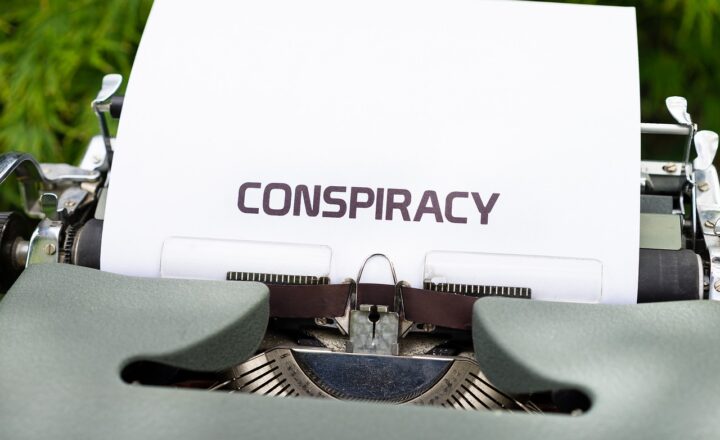The Role of the FBI in Unraveling the Mysteries Behind Conspiracy Theories
November 17, 2024

Conspiracy theories have permeated every aspect of our lives, perpetuating fear, shaping public perception, and often leading to significant social and political repercussions. In this landscape of misinformation, the FBI has played a pivotal role in investigating and dispelling various high-profile conspiracy theories. Understanding the FBI’s involvement illuminates both the nature of these theories and the methodology employed to unravel them.
1. The Emergence of Conspiracy Theories
Conspiracy theories are defined as beliefs or explanations that assert that covert, powerful actors are in control of significant events or situations. The human tendency to find meaning in chaos often leads us down a rabbit hole of alternative narratives, especially during times of uncertainty. From the assassinations of prominent figures to global health crises, conspiracy theories thrive in an environment of fear and distrust.
A textbook example is the theories that emerged after the assassination of President John F. Kennedy in 1963. Various factions, including the CIA, the mob, and even extraterrestrials, were implicated in his death with no conclusive evidence to support any claim. The FBI’s role, in this case, included investigations that aimed to clarify the sequence of events, which only fanned the flames of conspiracy.
2. How the FBI Investigates Conspiracy Theories
The FBI employs a multi-faceted approach when dealing with conspiracy theories. The agency utilizes investigative techniques that include:
- Data Analysis: The FBI gathers data from various sources, including online platforms and social media, to identify patterns and determine the potential origins of conspiracy theories.
- Surveillance and Intelligence Gathering: Traditional intelligence-gathering methods are crucial in cases that involve potential threats to national security related to conspiracy theories.
- Collaboration with Other Agencies: The FBI often collaborates with other law enforcement and intelligence agencies, such as the CIA and NSA, to trace the origins and verify the credibility of different theories.
- Public Outreach and Education: The FBI conducts initiatives to educate the public about misinformation and conspiracy theories. This effort aims to promote critical thinking around such theories and reduce susceptibility to manipulation.
These methods not only help the FBI understand the conspiracy landscape but also address direct threats emerging from flawed beliefs that fans fears and public unrest.
3. High-Profile Conspiracy Theories Investigated by the FBI
Several notable conspiracy theories have drawn the attention of the FBI.
3.1 The 9/11 Attacks
The September 11 attacks led to various conspiracy theories claiming government involvement or foreknowledge. The FBI conducted extensive investigations to sift fact from fiction, ultimately concluding that the attacks were orchestrated by Al-Qaeda. Despite this, the conspiracy theories surrounding them have persisted, showcasing how some alternative narratives prove resilient.
3.2 The Assassination of Martin Luther King Jr.
Another case is the assassination of civil rights leader Martin Luther King Jr. in 1968. Various theories emerged, suggesting that the FBI or other government entities were involved in his demise. The subsequent investigations helped clarify the role of James Earl Ray while inadvertently fueling skepticism about the FBI’s integrity and motives.
3.3 The COVID-19 Pandemic
In more recent times, the COVID-19 pandemic opened the floodgates for conspiracy theories concerning the virus’s origin, efficacy of vaccines, and government responses. The FBI, alongside health agencies, has worked to combat misinformation and offer credible information to the public to help quell panic and confusion.
4. The FBI and Digital Misinformation
In today’s digital age, conspiracy theories spread rapidly through social media platforms and websites. The FBI recognizes these challenges and has adapted its strategies to tackle misinformation head-on.
- Cyber Investigations: The FBI conducts cyber investigations to trace the source of misinformation and understand the motivations behind them. This creates a profile of habitual offenders who propagate harmful conspiracy theories.
- Collaboration with Technology Companies: Engaging with tech companies to manage misinformation addressed concerning topics that require immediate attention. Ensuring that accurate information is readily available while suppressing false narratives is essential in mitigating public panic.
- Raising Public Awareness: The FBI produces public service announcements and collaborates with educational institutions to promote digital literacy and critical thinking, educating citizens about the dangers of conspiracy theories and misinformation in the digital age.
This evolving role highlights the importance of adapting to new mediums through which conspiracy theories propagate, ultimately strengthening the FBI’s approach to public safety.
5. The Balance of Security and Freedom
As they investigate conspiracy theories, the FBI grapples with a significant tension between ensuring national security and respecting individual rights. The challenge lies in monitoring potential threats without infringing on civil liberties. The FBI aims to walk the fine line between vigilance and overreach, embodying the democratic principles of accountability and transparency.
This delicate balance is pivotal as society increasingly wrestles with the impacts of misinformation, shaping a landscape where trust is frequently up for debate.
Conclusion
The FBI plays a crucial role in investigating conspiratorial beliefs, ensuring that facts prevail over falsehoods, especially when misinformation threatens public safety and trust in democratic institutions. While conspiracy theories will likely always exist, the FBI’s commitment to transparency, public education, and robust investigative techniques can help untangle even the most pervasive narratives.
Through vigilance and education, we can work together to illuminate the murky waters of conspiracy theories, enhancing public understanding and ultimately safeguarding the principles upon which our society is founded.








